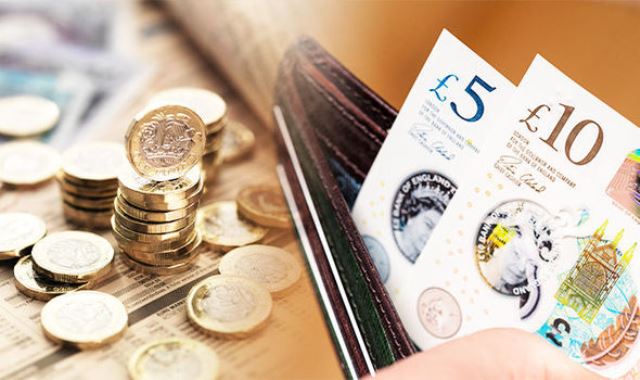Sterling slipped on Friday but remained on track for its biggest weekly rise since March, as worries about emerging markets faded and investors bet Britain would eventually clinch a Brexit trade deal with the European Union.
Britain and the EU are “closing in” on a withdrawal agreement, Brexit minister Dominic Raab said on Friday.
The British currency has become increasingly correlated to risk appetite in recent weeks and concerns over a widening emerging market currency selloff had also weighed on sterling.
Turkey’s sharp rate hike on Thursday, which smoothed investor nerves more broadly, and a Bank of England (BoE) upgrade of UK growth forecasts also helped the pound this week.
On Friday, after initially trading to its highest since July 31, at $1.3145, sterling fell 0.1 percent to $1.3092, pushed lower by a stronger dollar.
Sterling has reversed nearly all of its losses against the dollar in August, when fears of a no-deal Brexit surged.
On a weekly basis, it is up more than 1.3 percent.
“It has been a good week for high beta currencies including the pound, thanks to Turkey and growth upgrades by the Bank of England, but it is still too soon to flip to net long bets,” said Kenneth Broux, a currency strategist at Societe Generale in London.
The BoE voted 9-0 to leave interest rates at 0.75 percent, a month after tightening policy for only the second time since the 2009 financial crisis, and upgraded its forecast for third-quarter GDP growth, to 0.5 percent from 0.4 percent.
Despite growing confidence Britain can land a Brexit deal, domestic political uncertainty remains high.
Britain’s opposition Labour party will vote against Prime Minister Theresa May’s Brexit plans, a senior Labour lawmaker told the Financial Times.
BoE governor Mark Carney told British ministers the UK property market would crash and mortgage rates spiral up if there was a chaotic no-deal Brexit, the Times newspaper reported.
Sterling’s fortunes were more mixed against the euro as lower-than-forecast U.S. inflation data initially pushed the single currency higher. The pound was flat against the euro at 89.14 pence.
In the cash markets, hedge funds remain negative on the British currency, according to latest positioning data, showing a net $5.5 billion outstanding short position though the size of that position reduced slightly last week.
